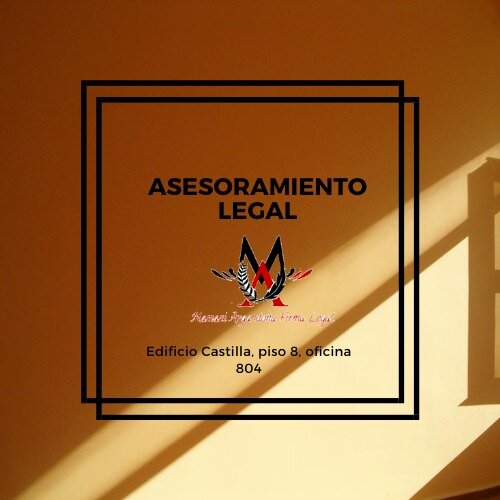Best Debt Capital Markets Lawyers in Bolivia
Share your needs with us, get contacted by law firms.
Free. Takes 2 min.
Or refine your search by selecting a city:
List of the best lawyers in Bolivia
About Debt Capital Markets Law in Bolivia
Debt Capital Markets (DCM) refer to the financial markets where companies, financial institutions, or government entities raise funds through the issuance of debt securities such as bonds or notes. In Bolivia, DCM serves as a fundamental channel for both public and private entities to access long-term funding and diversify their sources of capital. The market is regulated by local authorities to ensure transparency, investor protection, and the stability of the financial system. Bolivian law provides a specific framework governing the issuance, purchase, and sale of debt instruments, incorporating both domestic and international best practices.
Why You May Need a Lawyer
Engaging with Debt Capital Markets in Bolivia can be complex due to regulatory requirements and the need to comply with local and international standards. You may require legal assistance in situations such as planning an issuance of bonds, negotiating terms and covenants, understanding tax implications, conducting due diligence, or resolving disputes with counterparties. A lawyer helps in drafting documentation, liaising with local regulators, and ensuring compliance to avoid costly penalties or contractual risks. Investors, issuers, and intermediaries alike benefit from expert legal guidance when participating in these markets.
Local Laws Overview
Bolivian Debt Capital Markets are primarily regulated by the Bolivian Securities Market Law (Ley del Mercado de Valores), supervised by the Autoridad de Supervisión del Sistema Financiero (ASFI). The law details the requirements for the issuance, registration, offering, and trading of debt securities, as well as the obligations for disclosure and reporting. Key aspects include obtaining authorization from regulatory authorities before public offers, stringent information disclosure rules, and specific investor protection mechanisms. There are also regulations concerning tax treatment on interest payments and capital gains arising from debt securities, which should be reviewed in detail to ensure full compliance.
Frequently Asked Questions
What types of debt securities are commonly issued in Bolivia?
Commonly issued debt securities in Bolivia include corporate bonds, government bonds, notes, and structured financial instruments tailored to specific projects or sectors.
Who regulates the Debt Capital Markets in Bolivia?
The main regulatory authority is the Autoridad de Supervisión del Sistema Financiero (ASFI), which oversees all securities market operations including debt issuances.
What is the process to issue bonds in Bolivia?
Issuers must prepare a detailed prospectus, obtain approval from ASFI, register the securities, and comply with ongoing disclosure requirements. Legal assistance is crucial during each step.
Are foreign investors allowed to participate in Bolivian Debt Capital Markets?
Yes, foreign investors can participate in the Bolivian securities market. There may be additional requirements regarding registration, tax, and foreign exchange controls.
What are the main risks of issuing or investing in debt securities in Bolivia?
Risks include credit risk, market volatility, changes in regulatory policies, and currency risk for foreign investors. Legal counsel helps identify and mitigate these risks.
Are there tax implications for debt instrument transactions?
Yes, interest income and capital gains from debt instruments are taxed under Bolivian law. The tax treatment may differ for residents and non-residents.
What happens in case of issuer default?
In the event of default, debt holders may pursue legal action as outlined in the trust deed or bond agreement, subject to relevant Bolivian insolvency procedures and enforcement laws.
Can debt securities be traded on secondary markets in Bolivia?
Yes, registered debt securities can be listed and traded on the Bolivian Stock Exchange (Bolsa Boliviana de Valores), providing liquidity and pricing transparency.
What ongoing obligations do issuers have after a debt offering?
Issuers must fulfill periodic reporting, financial disclosures, and update the market regarding any material changes in the issuer’s business or financial condition.
How can a lawyer assist in dispute resolution related to debt instruments?
Lawyers represent clients in negotiations, mediations, and litigation arising from contractual disputes, defaults, or regulatory investigations, safeguarding client interests throughout the process.
Additional Resources
For more information and support regarding Debt Capital Markets in Bolivia, consider consulting these resources:
- Autoridad de Supervisión del Sistema Financiero (ASFI) - Main financial and securities regulator of Bolivia
- Bolsa Boliviana de Valores - The Bolivian Stock Exchange where debt instruments are listed and traded
- Ministry of Economy and Public Finance - Provides updates on policies impacting financial markets
- Chamber of Commerce and professional legal associations specializing in financial and securities law
- Educational seminars and publications from local law firms and financial advisory organizations
Next Steps
If you require legal assistance in the Debt Capital Markets sector in Bolivia, start by identifying a qualified lawyer or law firm with experience in securities and financial markets. Prepare a summary of your objectives, relevant documentation, and a list of key questions or concerns. Set up an initial consultation to discuss your case and obtain personalized guidance on compliance, risk assessment, documentation, and negotiations. Effective legal advice is crucial for the success of your transaction and to ensure your activities align with Bolivian laws and regulations.
Lawzana helps you find the best lawyers and law firms in Bolivia through a curated and pre-screened list of qualified legal professionals. Our platform offers rankings and detailed profiles of attorneys and law firms, allowing you to compare based on practice areas, including Debt Capital Markets, experience, and client feedback.
Each profile includes a description of the firm's areas of practice, client reviews, team members and partners, year of establishment, spoken languages, office locations, contact information, social media presence, and any published articles or resources. Most firms on our platform speak English and are experienced in both local and international legal matters.
Get a quote from top-rated law firms in Bolivia — quickly, securely, and without unnecessary hassle.
Disclaimer:
The information provided on this page is for general informational purposes only and does not constitute legal advice. While we strive to ensure the accuracy and relevance of the content, legal information may change over time, and interpretations of the law can vary. You should always consult with a qualified legal professional for advice specific to your situation.
We disclaim all liability for actions taken or not taken based on the content of this page. If you believe any information is incorrect or outdated, please contact us, and we will review and update it where appropriate.
Browse debt capital markets law firms by city in Bolivia
Refine your search by selecting a city.

















